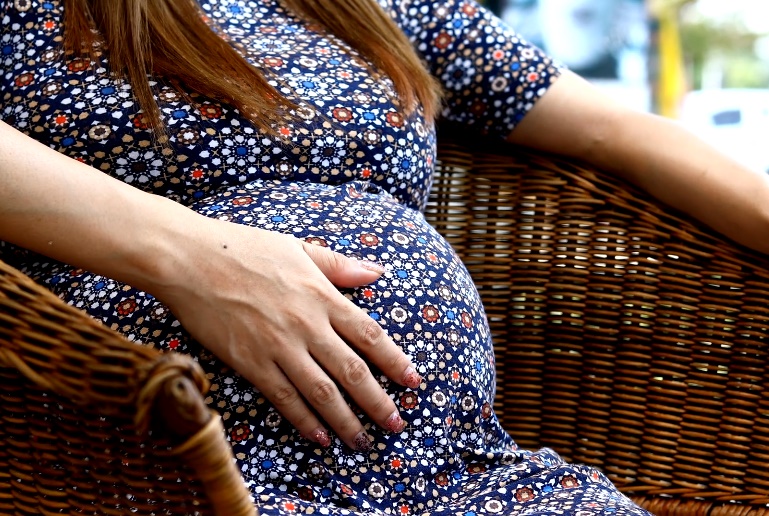Pregnancy is a transformative journey, not just for the body but also for the mind. One of the many changes a woman might notice during this period is the variation in vaginal discharge.
While it might seem concerning at first, understanding the different types of pregnancy leaking can provide reassurance and insight into the health of both the mother and the baby.
In this article we will explore the various types of discharge a woman might experience during pregnancy and what they symbolize.
Main Features
Pregnancy brings about many hormonal changes, which can influence the consistency and amount of vaginal leaking.
This discharge, medically known as leukorrhea, is usually thin, white, milky, and mild smelling. Its primary function is to maintain a healthy vaginal environment and prevent infections.
The Role of Estrogen
Estrogen, a hormone that sees a significant surge during pregnancy, plays a pivotal role in increasing the blood flow to the pelvic area. This, in turn, stimulates the body’s mucous membranes, leading to an increase in vaginal discharge.
It’s nature’s way of keeping the vagina clean and maintaining a balanced pH level.
Importance of Leukorrhea
Leukorrhea acts as a protective barrier. It flushes out dead cells and bacteria, ensuring a clean environment for the baby.
This discharge is essential as it prevents potential infections that could ascend from the vagina to the womb, safeguarding the fetus’s health.
Early Pregnancy

The early stages of pregnancy can be a whirlwind of changes, and the type of vaginal leaking one experiences can be indicative of these shifts.
Creamy and White
In the initial weeks following conception, a creamy white discharge is common. This is due to the formation of the mucus plug, a protective barrier that seals the cervix during pregnancy.
This discharge is thicker than leukorrhea and is a sign that the body is preparing to protect the fetus from potential infections.
Spotting or Light Bleeding
While most women associate bleeding with menstrual cycles, light spotting can occur during the early stages of pregnancy. This is known as implantation bleeding and happens when the fertilized egg attaches itself to the lining of the uterus.
It’s usually lighter than a regular period and lasts for a short duration.
Mid-Pregnancy

As one progresses into the second trimester, the nature and consistency of the vaginal discharge can change, reflecting the body’s adaptations to support the growing fetus.
Increased Leukorrhea
By this stage, the volume of leukorrhea might increase. This is a normal response to the body’s increased production of hormones and the growing baby’s demands.
While it might be a nuisance, it’s a sign that the body is functioning as it should, ensuring a safe environment for the fetus.
Yellow or Green Discharge
A yellow or greenish tint to the vaginal discharge, especially if accompanied by a foul odor, can be a sign of an infection like bacterial vaginosis, trichomoniasis, or a yeast infection.
It’s essential to consult a healthcare professional if you notice these changes, as untreated infections can lead to complications.
Late Pregnancy

As the pregnancy progresses into the third trimester, the body prepares for the impending birth. The changes in vaginal discharge during this period can be indicative of the body’s readiness for labor.
Thick Mucus Discharge
Towards the end of pregnancy, one might notice a thick, gelatinous discharge. This is the mucus plug being expelled, signaling that the cervix is beginning to dilate and efface in preparation for labor.
It can be clear, pink, or slightly bloody and is often referred to as the “bloody show.”
Watery Discharge
A sudden gush or a steady trickle of clear, odorless fluid can indicate the rupture of the amniotic sac, commonly known as the water breaking. This is a clear sign that labor is imminent, and medical attention should be sought immediately.
Potential Unusual Characteristics

While many changes in vaginal discharge are normal during pregnancy, certain characteristics can be indicative of potential issues and should not be ignored.
Frothy or Foamy Leaking
A frothy or foamy consistency, especially if paired with an unpleasant odor, can be a sign of trichomoniasis, a sexually transmitted infection. It’s crucial to get diagnosed and treated promptly to prevent complications.
Cottage Cheese-like Discharge
A thick, white discharge resembling cottage cheese can be indicative of a yeast infection. While these are common during pregnancy due to hormonal changes, it’s essential to consult a healthcare provider for appropriate treatment.
When to Seek Medical Advice?

While vaginal leaking during pregnancy is typically harmless, there are instances when it’s crucial to consult a healthcare professional.
Signs of Infection
If the leaking is accompanied by itching, burning, a foul odor, or any other signs of discomfort, it could be indicative of an infection. Early diagnosis and treatment can prevent potential complications for both the mother and the baby.
Heavy Bleeding
Any heavy bleeding, especially if accompanied by pain, should be treated as a medical emergency. It could be indicative of several conditions, including placental issues or preterm labor, which require immediate attention.
Hormonal Influence

Hormones play a pivotal role during pregnancy, influencing not just mood and physical changes but also the nature of vaginal leaking.
Progesterone’s Impact
Progesterone, another hormone that sees a rise during pregnancy, can lead to an increase in vaginal discharge. Its primary function is to maintain the uterine lining for a fertilized egg to implant and support the growing placenta and fetus.
The Decline of Estrogen
As the pregnancy progresses, especially towards the end, there’s a relative decline in estrogen levels. This can lead to a decrease in the volume of leaking, preparing the body for childbirth.
Good Hygiene – Necessary!

Maintaining good hygiene is essential during pregnancy, especially with the increase in vaginal discharge. Proper care can prevent infections and ensure comfort.
Choose the Right Underwear
Opt for cotton underwear as it’s breathable and can absorb moisture effectively. Avoid tight-fitting pants or underwear, which can create a moist environment, conducive for bacterial growth.
Gentle Cleaning
It’s essential to clean the vaginal area gently with water and avoid douching or using scented products, which can disrupt the natural pH balance and lead to infections.
Myths and Misconceptions

There are several myths surrounding pregnancy leaking, which can lead to unnecessary panic or misinformation.
Discharge Indicates Baby’s Gender
A common myth suggests that the nature of the leaking can indicate the baby’s gender. There’s no scientific basis for this claim. The consistency and volume of leaking are influenced by hormonal changes and not the gender of the baby.
Frequent Leaking Means Preterm Labor
While changes in discharge can indicate the onset of labor, frequent leaking throughout pregnancy doesn’t necessarily mean one will go into preterm labor. It’s essential to understand the difference between normal leukorrhea and signs of labor.
FAQs:
Can leaking indicate a UTI?
While discharge itself might not indicate a UTI, if accompanied by pain, burning, or frequent urination, it could be a sign of a urinary tract infection.
Is itchy discharge normal during pregnancy?
This can be a sign of a yeast infection or other vaginal infections. It’s essential to consult a doctor.
How does bacterial vaginosis affect this?
Bacterial vaginosis can lead to a grayish-white discharge with a fishy odor.
Can stress impact pregnancy leaking?
While stress can affect various aspects of pregnancy, there’s no direct evidence linking it to changes in discharge.
Does diet influence the type of discharge?
There’s no direct link between diet and pregnancy leaking, but a balanced diet can help maintain overall vaginal health.
The Bottom Line
Pregnancy is a journey filled with wonder, anticipation, and naturally, a lot of questions. Vaginal discharge, though not often discussed, is an integral part of this journey.
Understanding and embracing the changes your body undergoes during pregnancy can make the experience more comfortable and less daunting.
Remember, every woman’s body is unique, and so is her pregnancy journey. While this guide provides a comprehensive overview, always prioritize your health and well-being.
If in doubt, seek advice from healthcare professionals who can provide guidance tailored to your specific needs.
